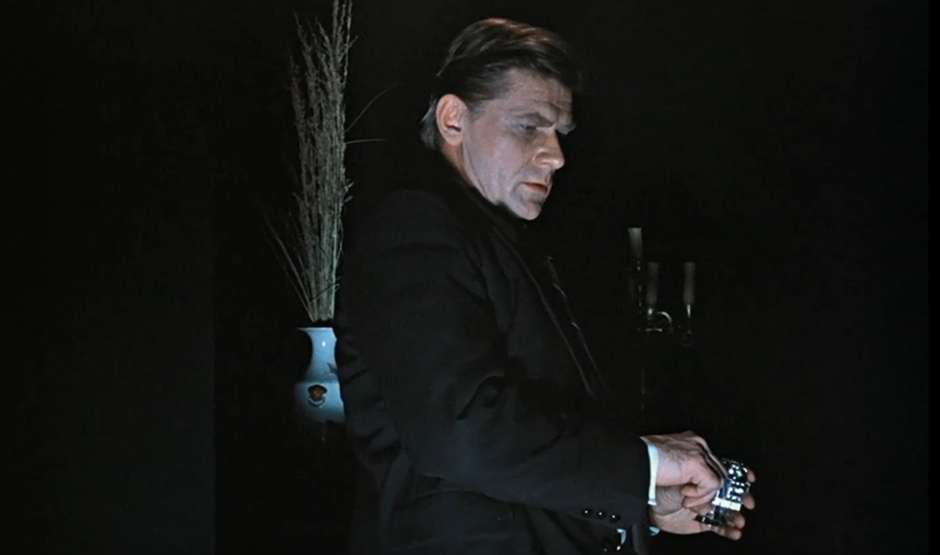The Quick & The Dead (1987) Review
- Benjamin May
- Jun 29, 2024
- 3 min read
In the year 1876, Duncan McKaskel, his wife Susanna, and their young son Tom leave Pennsylvania, embarking on a journey through Wyoming- a land ripe with promise and peril. As they traverse the rugged terrain, they encounter Doc Shabbitt and his felonious gang of ruffians, who shadow their every move. It’s in this precarious moment that a mysterious stranger, Con Vallian, emerges from the wilderness. Vallian’s decision to aid the McKaskels sets the stage for their survival, but at what cost? In a land where justice is often dispensed down the barrel of a gun, Vallian’s skills become their lifeline.
A TV movie directed by Robert Day, and based on the novel of the same name by Louis L'Amour, ‘The Quick and the Dead’ is a predictable but entertaining western of the old style. Much like other L’Amour works, such as ‘Hondo,’ ‘Connagher’ and ‘Crossfire Trail,’ the narrative deals with disparate characters who are emblematic of the cultural divide between the American East and West; characters who must learn to work together if they are to survive.
Although enjoyable, screenwriter James Lee Barrett tends towards the cliched, especially with regard to characterisation. Vallian’s stoicism, Susanna’s defiance, Duncan’s inner turmoil, Shabbitt’s eloquent villainy, Tom’s awakening- all echo familiar Western archetypes, adhering to traditional character tropes of the genre. Their linear journey provides few surprises and the sparse moments of action within lack excitement or tension. Moreover, when closely examined, some aspects of the plot lack credibility. Vallian’s self-sacrifice for a family he barely knows seems contrived, as does the hackneyed, underwhelming ending.
Additionally, Dick Bush opts for a conventional cinematographical approach, meaning the visuals lack flair or originality. While he adeptly captures the stark beauty of the American West, when filming in exquisite locations like Coconino National Forest and Sedona, Arizona, it would be challenging not to showcase their splendour. Furthermore, while Bush’s use of close-ups and wide shots adheres to traditional Western filmmaking, tension-building techniques- such as creative framing, dynamic camera movement, or unexpected angles- are somewhat absent.
Moreover, Steve Dorff’s score is overblown to the point of parody. His melodies sound like someone trying to mimic, or mock, the sentimental ballads found in your average John Wayne film; a sweeping undercurrent rolling like amber waves of grain in the wind. Conversely, Barbara Weiss’s costume design brings a most welcome authenticity to proceedings, while A. Rosalind Crew’s minimalistic set decoration and Chester Kaczenski’s production design further enhances this visual appeal.
Sam Elliott stars as Vallian, opposite Kate Capshaw as Susanna. Elliott is pitch-perfect as the stoic, rifle-toting stranger, utilising his world-weary charm to full effect. Capshaw does commendable work as Susanna, elevating what could have been a one-note character into a believable, multifaceted personality. Tom Conti subtly underplays it as Duncan, and is very effective in a role that seems somewhat out of his comfort zone. Additionally, Matt Clark- who has appeared in many of Hollywood’s best westerns- makes for a fantastic villain as Shabbitt, unhinged yet calculated, and always entertaining.
Although cliched and predictable, Robert Day’s ‘The Quick and the Dead’ still holds entertainment value, especially for fans of old-school westerns. Despite unremarkable cinematography and an overblown score, it’s a compelling piece, thanks in large part to the efforts of the cast- especially Sam Elliott and Matt Clark. While this might not be the best Louis L'Amour adaptation, it still rollicks along, like a thoroughbred at full gallop, faltering here and there; but never knocking its rider from the saddle.








